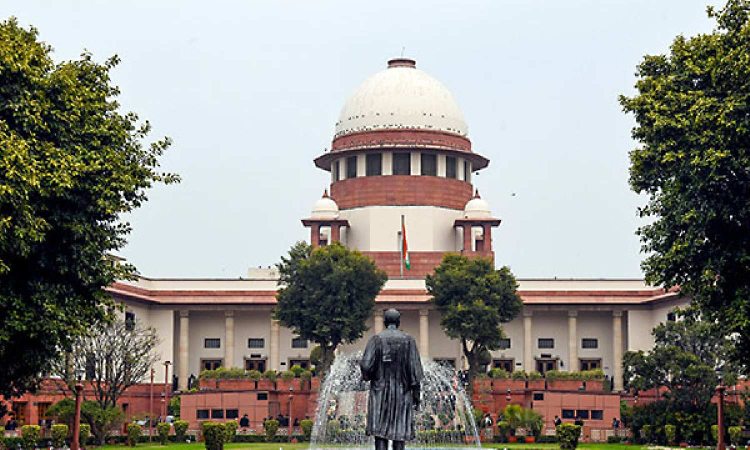Editorial: SC’s middle path on Waqf reforms
The reactions of the government and those who challenged the amendment act reveal how everyone can claim a victory of sorts.

Supreme Court
The Supreme Court of India has given partial relief to the petitioners by staying some key provisions, but in its interim order has declined to stay the Waqf Amendment Act 2025 in its entirety. The reactions of the government and those who challenged the amendment act reveal how everyone can claim a victory of sorts. The government representatives read the interim order as an endorsement of the Parliament’s decision, while the Opposition maintained that the SC gave relief to the petitioners by putting the brakes on some of the problematic provisions. The voices from the Muslim community, however, have been varied, and many seemed to be heaving a sigh of relief that it is an interim order and not a final verdict.
A close reading of the order, however, reveals that the apex court took a moderate position, saying, “Presumption is always in favour of the constitutionality of the statute,” which worked in favour of the government, which had contended that a law duly enacted by the Parliament cannot be halted as unconstitutionality has not been established by the petitioners. On the other hand, the court did stay the operation of three important provisions relating to the inclusion of non-Muslims in Waqf Council and Boards, the eligibility regarding five years of practice to create a Waqf, and the powers of the collector to denotify “Waqif-by-User”. These provisions were perceived by the Muslim community to be against their religious rights and interests. One, it would impinge on their religious autonomy.
Two, it would make Waqf properties vulnerable to acquisition or worse, encroachment.
Administration of Waqf properties has always been controversial and contentious. The old system was indeed liable to some misuse, and the court highlighted the point regarding evading legal proceedings or denying the claims of creditors. No one can deny the need for plugging the loopholes, making it more transparent, and tweaking the system. In fact, past governments passed laws to reform the administration of waqf. The first major step was the 1923 Act, which streamlined registration and financial accounting of Waqf properties. The 1954 Act focused on an institutional mechanism for better management, and the comprehensive 1995 Act went one step further to put in place a dispute redressal mechanism.
What has changed in the present context? Given the ideological leanings of the present government, the Muslim community is sceptical, even apprehensive, about the intent behind the Act. They allege that the government, in the guise of reforms, is trying to undermine the community’s control through administrative overreach and changing religious composition. There is clearly a trust deficit, and the community's suspicion that some ulterior motives may not be entirely unfounded, as the ruling party and other members of the Sangh Parivar have been queering the pitch through divisive rhetoric and exerting pressure on minorities in general and Muslims in particular. Secondly, the government could have taken the community into confidence through extensive outreach and followed it up with consultations, especially with those who are wary of the amendments. Thirdly, the process of enactment too did not inspire confidence as the Joint Parliamentary Committee came under a cloud of suspicion as it approved amendments proposed by the BJP-led National Democratic Alliance (NDA) and rejected the changes submitted by Opposition MPs. Unfortunately, it is a political problem for which finding a legal solution to assuage the community’s fears could be a formidable challenge.



